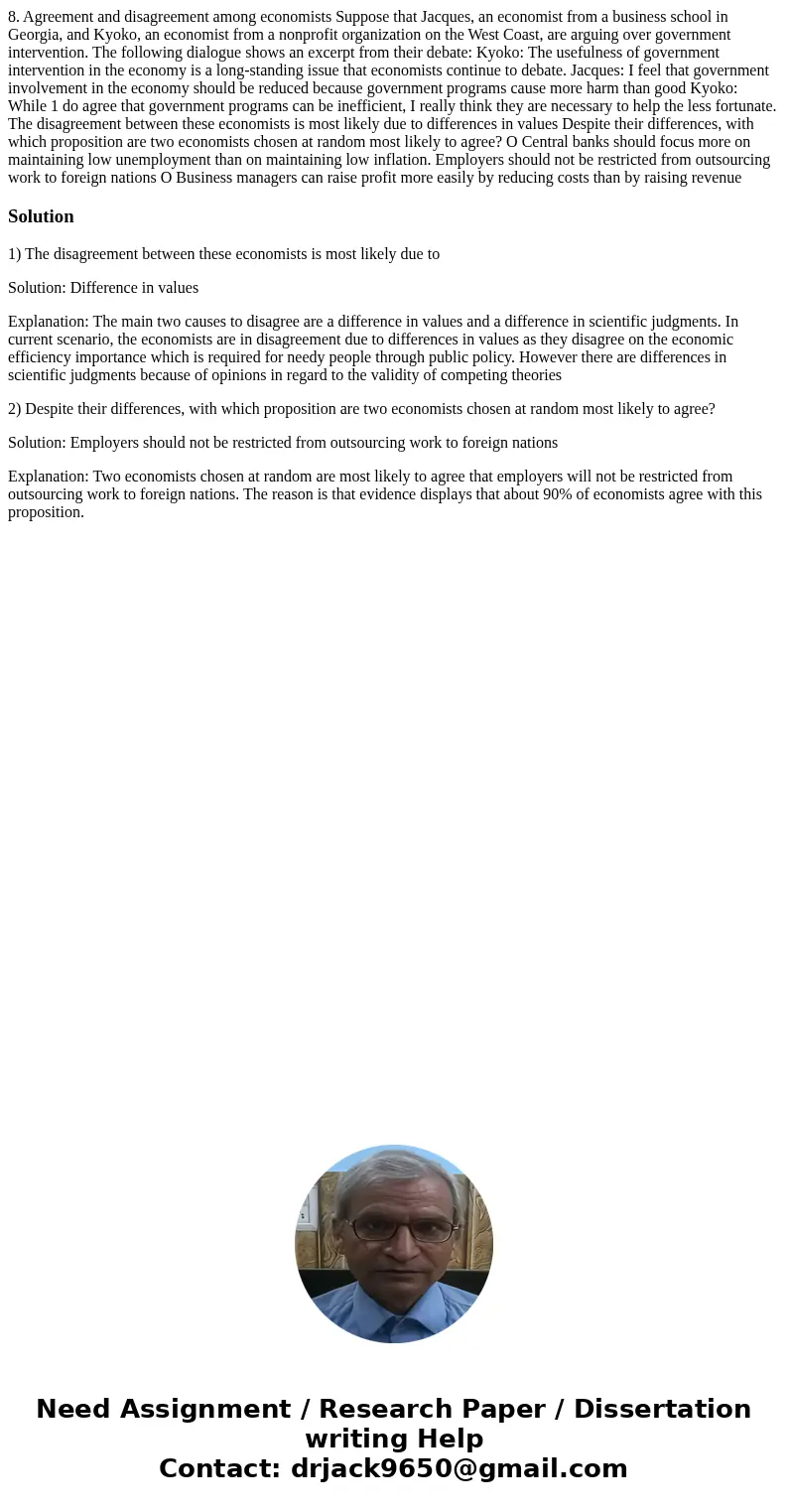8. Agreement and disagreement among economists Suppose that Jacques, an economist from a business school in Georgia, and Kyoko, an economist from a nonprofit organization on the West Coast, are arguing over government intervention. The following dialogue shows an excerpt from their debate: Kyoko: The usefulness of government intervention in the economy is a long-standing issue that economists continue to debate. Jacques: I feel that government involvement in the economy should be reduced because government programs cause more harm than good Kyoko: While 1 do agree that government programs can be inefficient, I really think they are necessary to help the less fortunate. The disagreement between these economists is most likely due to differences in values Despite their differences, with which proposition are two economists chosen at random most likely to agree? O Central banks should focus more on maintaining low unemployment than on maintaining low inflation. Employers should not be restricted from outsourcing work to foreign nations O Business managers can raise profit more easily by reducing costs than by raising revenue
1) The disagreement between these economists is most likely due to
Solution: Difference in values
Explanation: The main two causes to disagree are a difference in values and a difference in scientific judgments. In current scenario, the economists are in disagreement due to differences in values as they disagree on the economic efficiency importance which is required for needy people through public policy. However there are differences in scientific judgments because of opinions in regard to the validity of competing theories
2) Despite their differences, with which proposition are two economists chosen at random most likely to agree?
Solution: Employers should not be restricted from outsourcing work to foreign nations
Explanation: Two economists chosen at random are most likely to agree that employers will not be restricted from outsourcing work to foreign nations. The reason is that evidence displays that about 90% of economists agree with this proposition.

 Homework Sourse
Homework Sourse